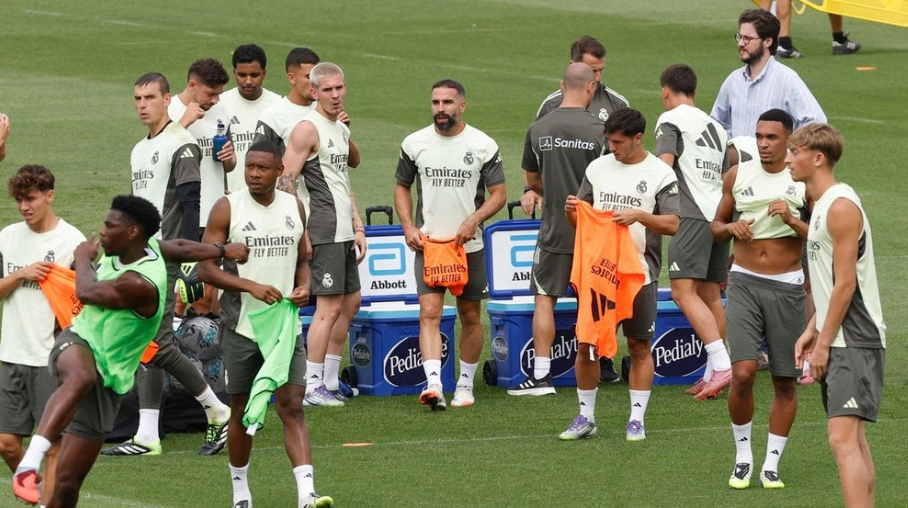When Faith Collapses Before Reality
You spend hours analyzing data, studying lineups, and listening to top soccer pundits but then the game ends, and your team loses. If this sounds familiar; you’re not alone.

Predicting football — whether for fun or for betting — is an art that combines data, emotion, and luck. However, if you find yourself consistently “slipping up” in your predictions, you may be making common mistakes that many people make. This article will help you discover why your predictions are often off and more importantly, how to improve them scientifically & effectively.
1. Too Much Emotion: When the Heart Overpowers Reason
One of the biggest mistakes is letting emotions rule your decisions. For example, many people always believe in their favorite football team like Manchester United or Barcelona, regardless of their actual performance.
For example: example , in the 2023/24 season , Chelsea were expected to win against Nottingham Forest . However , the result was a bitter 0-1 home defeat . Those who bet on Chelsea just because of the name paid the price .In the 2023/24 season, Chelsea were expected to win against Nottingham Forest. However, the result was a bitter 0-1 home defeat. Those who bet on Chelsea just because of the name paid the price.
Solution: Always look at objective data such as recent form, head-to-head record, injury numbers and home/away form rather than relying solely on gut feeling or team reputation.
2. Ignoring Important Statistics
Football predictions cannot be based on gut feelings alone. Statistics such as goal average, possession, shots on target and goals conceded play a key role.
Real life example: Brentford had the highest first half goal rate in the Premier League last season, but many people did not pay attention to this detail when betting on “Full Time”. As a result, many bets lost due to lack of understanding of the team’s scoring habits.
Solution: Use platforms like SofaScore, WhoScored or FlashScore to dig into the numbers. Let the data guide you rather than relying solely on personal predictions.
3. Lack of Information Updates Before G-Hour
Lineups, injury news and weather conditions can change the outcome of a game in a matter of hours. Many people make early predictions and then don’t adjust them when new information becomes available.
For example: Real Madrid vs Getafe, when Vinicius Jr was unexpectedly absent due to a last-minute injury, Real’s attacking power was significantly reduced. Those who did not closely follow the team’s lineup information were at a disadvantage when they still placed their faith in the “Over” option.
Solution: Follow reputable sources such as the team’s Twitter, the club’s website or football forums that are constantly updated. Don’t bet or predict too early if you don’t know the official lineup.
4. Not Understanding the Nature of Each Match
Not every game is played with the same objectives and pressure. A Champions League group stage match can be very different from a do-or-die match in the knockout stages or a Premier League round of 38 tie.
For example: In the final round of matches of the season, many teams are certain to stay in the league or have no more goals, so they play with a reserve team. Predicting the winner or loser at this time needs to be based on motivation rather than usual performance.
Solution: Find out the context of the match: which teams are desperate for points, which teams are saving players for other tournaments. This information is often overlooked but has a huge impact on the final result..
5. Predicting Too Many Matches: Quality Loses Quantity
Many people have the habit of predicting or betting on dozens of matches in a day. This reduces the accuracy because you do not have enough time to study each match carefully.
For example, in a round of 10 matches, if you only really analyze 2 matches, your probability of being correct in those 2 matches is much higher than the remaining 8 matches based on intuition.
Solution: Focus on the 1–3 games you know the most about. Don’t let greed get in the way of the quality of your predictions. One correct prediction is worth a dozen wrong ones.
6. Not Adjusting Your Strategy Over Time
Football changes from season to season. A team that was strong last year may fall apart this year due to the loss of key players, a change of coach, or internal strife. If you don’t keep up with the trends, your predictions will become increasingly skewed.
Real-life example: Liverpool’s 2022/23 season has clearly declined due to an ineffective defense, but many people still believe in them like in 2019–2021.
Solution: Reassess your strategy every month. Track performance metrics and read reviews from multiple sources to update your perspective.
Conclusion: Turn Mistakes Into Lessons & Turn Predictions Into Skills
Football prediction is not just a game of chance, but a skill that can be trained. Failure in predictions does not mean you are not capable, but that you do not have the right strategy. By:
-
Remove personal emotions from analysis,
-
Based on accurate statistical data,
-
Continuously updated information before the match,
-
Understand the context of the game,
-
Limit the number of matches predicted and
-
Regularly adjust the method,
… you will gradually improve your ability to read the game, improve your success rate and avoid unfortunate failures.
Football is a game of surprises but you can minimize the risk with smart analysis and understanding. Turn every wrong prediction into a learning opportunity, and you will gradually become a more astute football predictor every day.








